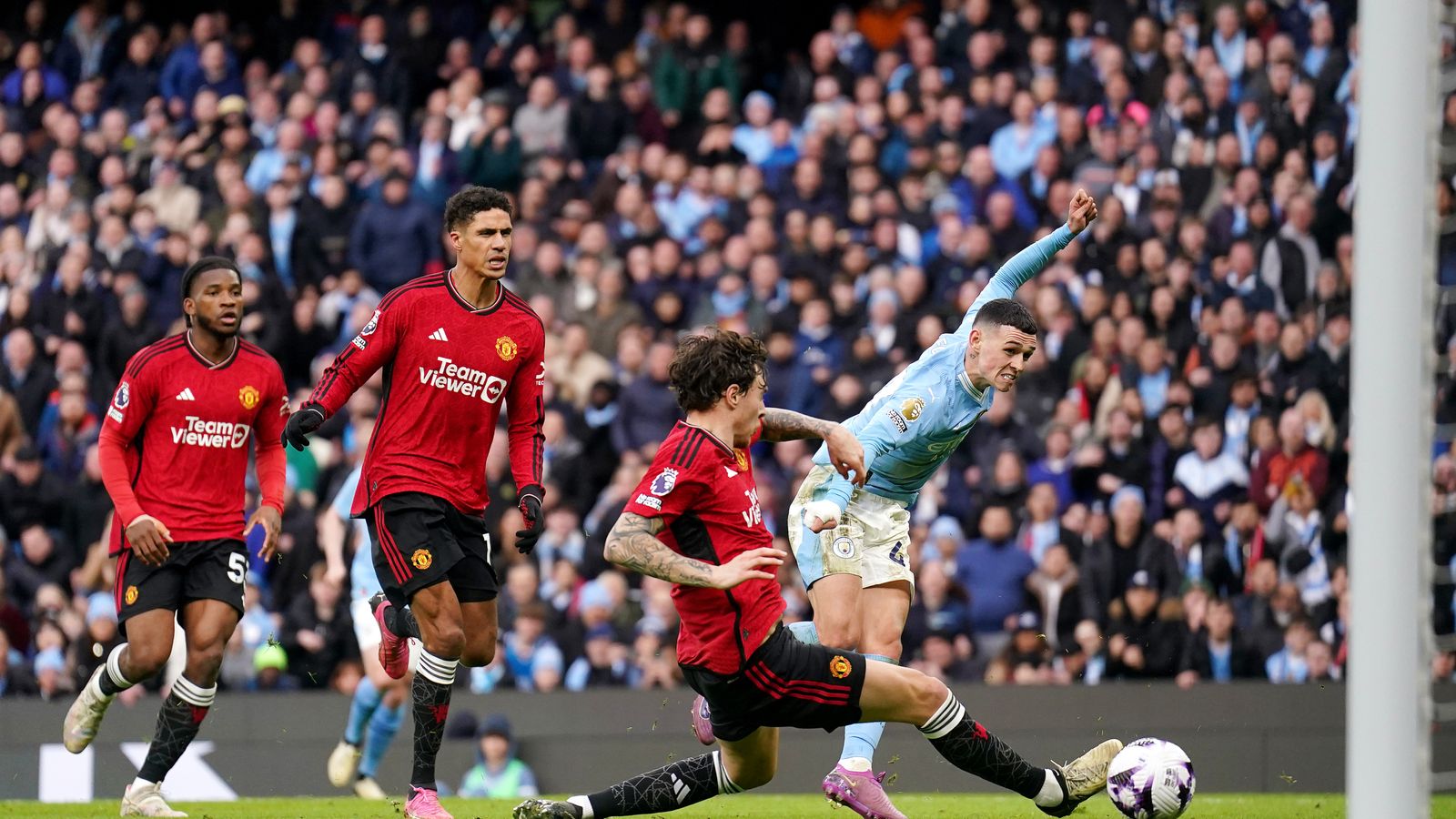Premier League bosses are this weekend scrambling to finalise a landmark £836m financial settlement just days before the publication of legislation to establish English football’s first statutory regulator.
Sky News has learnt that the 20 top-flight clubs, which include Aston Villa, Liverpool and Tottenham Hotspur, will on Monday be asked to approve a revised version of a ‘New Deal’ with the English Football League (EFL) that will include proposals for an increased levy on player transfers.
Industry sources said that if the New Deal was approved at the Premier League shareholder meeting, it would then be submitted to the EFL for ratification.
The revamped blueprint, which comes after several previous versions were blocked by Premier League clubs, includes provision for an immediate £44m payment to the lower leagues, followed by a further £44m within months.
This £88m, however, would effectively be pitched as a loan that would be repayable by the EFL over a period of more than six years.
On Saturday, there were growing signs that the Premier League would struggle to obtain the required support of 14 clubs to approve the resolution, with at least two clubs said to have already decided to oppose it.
The Premier League is understood to have decided to make the vote independent of any conditions attached to wider financial reform of English football, which has alarmed a number of top-flight owners.
Anxiety has been heightened in recent weeks by the disclosure – revealed by Sky News – that an unnamed club, said to be Manchester City, is pursuing legal action to overturn rules on associated party transactions.
Some analysts have flagged privately that if Manchester City was successful in its action, it could have grave implications for the entire system of Financial Fair Play across Europe.
The £836m, which rises to £924m with the additional instalments totalling £88m, is partly hypothetical in that it is based on a calculation of net media revenues.
Monday’s vote is likely to be the last before the government publishes the Football Governance Bill, which will pave the way for the establishment of a new regulator with powers to impose a financial redistribution agreement on the sport.
The legislation is likely to be introduced this month, according to Whitehall sources.
Rishi Sunak has warned English football’s power-brokers that a deal will be introduced regardless of their willingness to agree it – a threat which has sparked fury among club-owners who believe the Conservatives are themselves risking the financial sustainability of the professional game.
“My hope is that the Premier League and the EFL can come to some appropriate arrangement themselves – that would be preferable,” the prime minister said in January.
“But, ultimately, if that’s not possible, the regulator will be able to step in and do that to ensure we have a fair distribution of resources across the football pyramid, of course promoting the Premier League but supporting football in communities…up and down the country.”
Under the deal to be presented on Monday, the existing 4% transfer levy would rise to 6%, and then 7%, during the duration of the agreement with the EFL.
One source said the increased levy would put the Premier League at a financial disadvantage against other European domestic leagues including in Germany, Italy and Spain.
Funding for the New Deal would also be derived from existing mechanisms which are used fund the Premier League’s annual solidarity payments to the EFL.
Some Premier League bosses believe the initial £88m to be handed over this season, which would come from the top division’s financial reserves, would not, ultimately, be subject to repayment.
A meeting late last month did not proceed to a vote, even after talks between Lucy Frazer, the culture secretary, and the 92 professional clubs in which she urged them to resolve their differences over the prospective agreement.
Talks over the New Deal have been dragging on for well over a year.
At one point last autumn, a £925m agreement looked to be inching closer, but the two sides failed to bridge their remaining differences.
In December, Richard Masters, the Premier League chief executive, notified clubs that it was calling a halt to further talks with the EFL because of divisions about the scale and structure of the proposed deal.
At a meeting with shareholders last month, however, he suggested that negotiations had again become more constructive.
Some clubs appear to be resigned to the lack of a voluntary agreement, and believe the new regulator will be charged with imposing a deal as one of its first priorities.
With the time required to establish the watchdog and get it fully operational, though, government officials believe it could be 2026 before it is in a position to do so.
There has been significant unrest among Premier League clubs over the cost of the subsidy to the EFL, as well as the lack of certainty about the regulator’s powers and other financial reforms.
At least one club in the bottom half of the Premier League is understood to have raised the prospect of having to borrow money this year to fund its prospective share of the handout to the EFL.
It is among a number of governance and legal headaches facing the Premier League, with a fresh fight looming with Manchester City over the associated party transaction rules which most affect clubs with state, private equity or multi-club ownership structures.
In a white paper published last year, the government said: “The current distribution of revenue is not sufficient, contributing to problems of financial unsustainability and having a destabilising effect on the football pyramid.
The document highlighted a £4bn chasm between the combined revenues of Premier League clubs and those of Championship clubs in the 2020-21 season.
The FFP regime has also ensnared clubs including Everton, which recently had a ten-point deduction reduced to six, Manchester City and Nottingham Forest.
The Premier League declined to comment this weekend.
